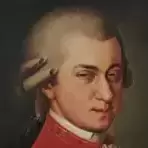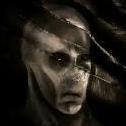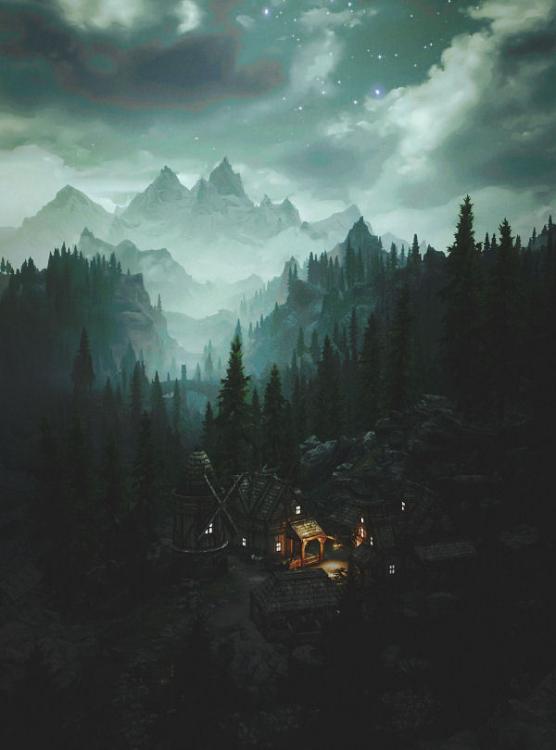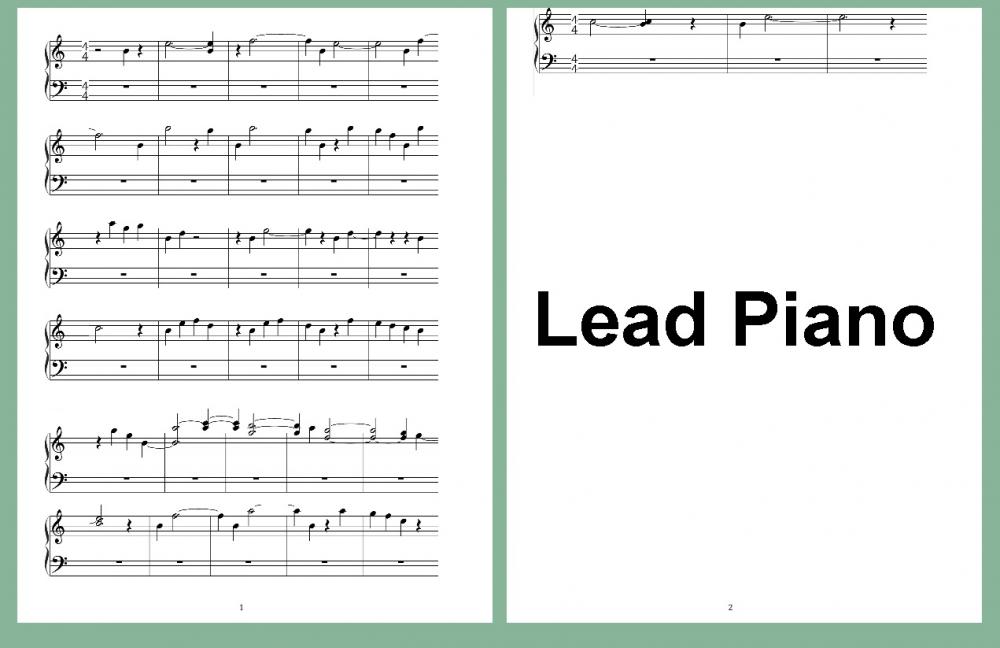Search the Community
Showing results for tags 'incomplete'.
-
Hi guys, this is a piece I wrote recently, and I'm already stuck at bar 21 😞 I feel like my music is proceeding far too quickly, but I have no idea as of how to slow it down to make it more logical. I also get stuck easily whenever my initial ideas ran out... PS:It is a homework assigned by my music teacher, we were given a one-bar rhythm (I used it in the first bar) and are required to write a piece based on it. However, the music lesson does not focus much on composition- also there are many students in my class- so the teacher only glanced through my work and gave a few suggestions without telling me what I should actually do. (I've never had any formal training on composition, only some music theory knowledge at about ABRSM grade 6) PPS: I am a very slow composer and spent like four weeks writing these twenty bars of music. Sometimes it takes weeks to generate ideas. Is this normal? How should I improve on the speed and quality of my work? All suggestions/advice and criticisms are welcomed! Thanks in advance 😉 Saltypenguin
-
So, I'm sharing my current project here mainly out of a textural concern that occurs around the 2 minute mark. It's not that I don't like the texture or feel it lacks any compositional/orchestrational merit -I think it's quite strong to be honest. My concern is that I'm not sure how to take this texture. The idea of the prelude to this suite for orchestra is to present a theme from each of the suite movements -which this does well. However, I'm concerned that the ending is a bit aurally new to the ears -even if we take minimalist standards. The setup occurs with a duet between the oboe and clarinet which lays the groundwork for a steady pulse by the winds, followed by a tightly spaced cluster chord in the winds that gradually rises in volume and chromatic intensity till the trumpets punctuate the texture with 4 notes in succession (echoed by horns an eighth note apart). This rises in volume until the full orchestra holds the final chord to its loudest. I love it -but what I'm afraid of is that the landscape is difficult. It took me a few days to start the 2nd movement. Is it too intense? Is the texture too new? Should I rewrite the prelude? EDIT: Forgot to mention this is scored for chamber orchestra (1.1.1.1,2 horns, 1 trumpet, Timpani, Strings) -the score isn't final yet! POSTEDIT: Added the second movement for some clarity.
-
The Emperor Sonata for Two Pianos is he 14th sonata I wrote for piano (even though the 1st for two pianos). I consider this sonata my 1st sonata (because the other 13 before this one could fall into the "Sonatina" cathegory.). The idea with this piece was inspired by the concept of Liszt's Sonata in B flat minor of creating an enourmous sonata where all the sonata is a gigantic sonata form. The first movement introduces the first subject (the Prometheus Theme by Beethoven). Second movement he second subject. Finally the third would be a third subject and the development . The cadenza its the recapitulation where all the subjects are restated in the same key and are transformed into this kind of "Fugue" where all the subjects sound toghether in harmony. The sonata is inspired in the 5th symphony of Beethoven, the first movement starts in C minor and the last in the glorious C mayor. During most of the piece the doted rythim can be heard. That rythim is for simulating a horse running. MOVEMENT I (Allegro) The first movement is written in sonata form. The first subject is introduced in C minor (1:28 min), the second subject (the Prometheus Theme by Beethoven) is presented in G mayor (2:20 min). The movement stills need to be finished (a lot) Ingnore from minute 3 until the end. MOVEMENT II (Adagio) The second movement is written in G mayor, (it needs to be transposed to D mayor so the theme in the second movement is in the dominant of the Prometheus Theme). The movement is still very raw. Its still needs to be developed and polished. In 4:13 min, the arpeggios of the first movement reapear. MOVEMENT III (Alegro Maestoso) The third movement, the finale, presents the last subject (that is just a baseline for the ending "fugue"). Then it develops the baseline and repeats it again. When the coda starts (5:48 min), there is where I need to work. In that part the "fugue" will enter (6:04 min).
-
I've been composing for about two months (playing piano for a lot longer) but I have an overall problem with starting and finishing stuff. Most "scores" I write just start kind of instantly and end very sudden. The first one doesn't really have an ending, I think it's better on the last ones but how would you make these longer? Happy Adventure Something.mp3 epic orchestral 2.mp3 dreamy weird stuff.mp3
-
Hey, village.mp3 - for some reason the mp3 is a download, not the typical player, anyone knows how to fix this? I've worked on this a few days ago and it's the first time that I feel as if I've created the kind of feeling that I wanted. I've imagined this a background music for something like a MMORPG, maybe for a kind of mini hub or checkpoint. As in the picture, imagine sitting at a campfire after a day of work and just checking on your inventory. I tried to create a feeling of being save in a camp, sourrunded by the night and the dark forrest wich is filled with dangerous creatures. Try to close your eyes and think of whatever it makes you think of. If you want to tell me, you're absoluetly invited to. :) I know it's kind of short, focused on quality over quantity. All sounds are taken from the Factory Kontakt Library. Also excuse if I wrote some typos, tired af due to school right now. Have a nice day :)
-
I'm currently one minute into writing this. Feedback would be very much appreciated on what needs to be changed, as well as on how to continue it :)
-
Before I go any further with this I wish for you guys thoughts. How does is sound thus far? What would you do next? How are the notes in each instrument. I'm asking this because I'm trying really hard to learn this stuff
-
Silent Mysterious Hills.mp3The hills are seemingly quiet and calm until later.... Inspired by a music box tune and Alice in Wonderland (Twisted Version). This is the first part of the track I'm still figuring out the second part. I dunno how to read notes, only keyboard labels (C#, C2, C1, C4) but here are the notes...
-
So tbh, I have no files to upload yet, as I have just started this project. I WOULD start a topic in the "incomplete works section", BUT encountered the following problem: because i have just started the project, and just wanted to upload some background info, Notes, etc. to comment on or share or whatever, It wouldn;t let me start a topic there. so here goes. Shir L'hodot, or "song to thanks" is a piece for concert band (with added solo bass and solo cello) which is intended to showcase some core concepts of judaism by painting them in music. Despite the title, it is in reality centered around 3 "prayers" and snippets and segments of their traditional melodies (which have been around for hundreds of years): Kol Nidre (All Vows), Sh'ma (Hear), and Aleinu (Duty). So some background information on each. Note: I am specifically leaving out the k'dushah (Kadosh, Kadosh, Kadosh hashem tzivaot - Holy Holy Holy is the lord of hosts), because it was ripped from the Hebrew about 800 or so years ago for the Catholic Sanctus. REALLY no offense intended to Christianity and Christians, I love you guys all the same, but I would like to keep as far away from those texts as possible within this piece. I really don't want this compared or contrasted to Christian Sacred music, on any level. Kol Nidre: it is a prayer that is sung only on Yom Kippur, has a main theme of judgement and annulment, and specifically represents forgiveness. This theme prevails on the cello, most times that it appears throughout the piece. it is a haunting melody, that is in a prevailing key of D Minor. Sh'ma: it is a prayer that is said every day. Some background before I go into its importance: Jews are forbidden to say blessings in vain. So... when there is a fear that a blessing or prayer is being said in vain (i.e. you think you have already said it for the situation, etc. but are not sure.) you are supposed to follow it up with the line "baruch shem k'vod malchuto l'olam va'ed" which means "bless your name and glorious kingship, which shall abound forever", which in essence annuls the blessing. However, there is one blessing that is of such magnitude, that we are unable to recite it without the additional line in our current lifetimes. This is the Sh'ma, which is a blessing for oneness and unity: "Sh'ma Yisrael, hashem elokeinu, hashem echad" or "hear o' israel, the lord is our god, the lord is one", a core concept in judaism. Aleinu: it is a prayer recited every day which details our duty. The central line/concept is the phrase "V'Anachnu Korim, U'mishtachavim, u'modim. Lifnei melech, malchei hamlachim, ha kadosh baruch hu.", or "and we bend our knees, bow, and acknowledge our thanks to the king of all kings, the holy one, blessed be he". So the way it will be organized within the piece: The piece will begin with a cello solo with a bass pedal tone, the introduction from Kol Nidre, followed by a bunch of original material inspired by traditional semitic melodies. the "flavor" of the piece will change dramatically as it approaches its apex, changing into a fanfare-ish style, where it will play out first as a low brass interlude the melody of the Sh'ma, transitioning into a full-band fanfare of "V'Anachnu Korim". It will then descend back into a flowing minor feel, followed by a decrescendo to the end, with a pedal in the 1st trumpet and polychords in the middle and low voices. A caesura, then another phrase from Kol Nidre, solo Cello, followed by a final minor chord, pianissimo. Let me know what you think of the ideas. --- Aaron Coff
-
- jewish music
- concert band
- (and 8 more)








